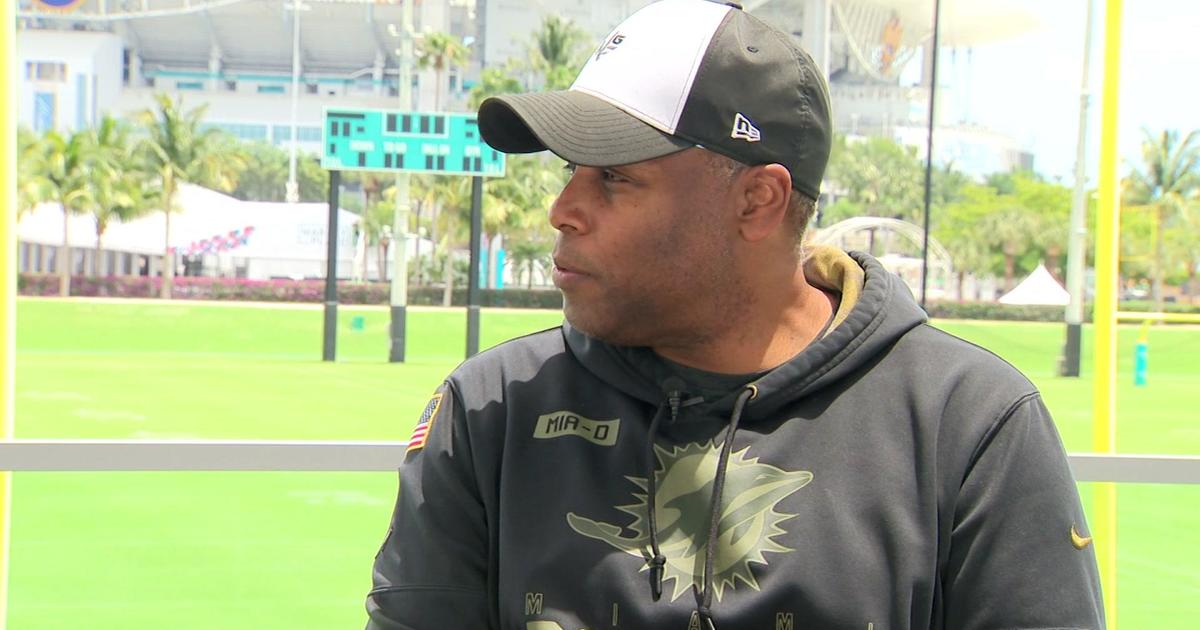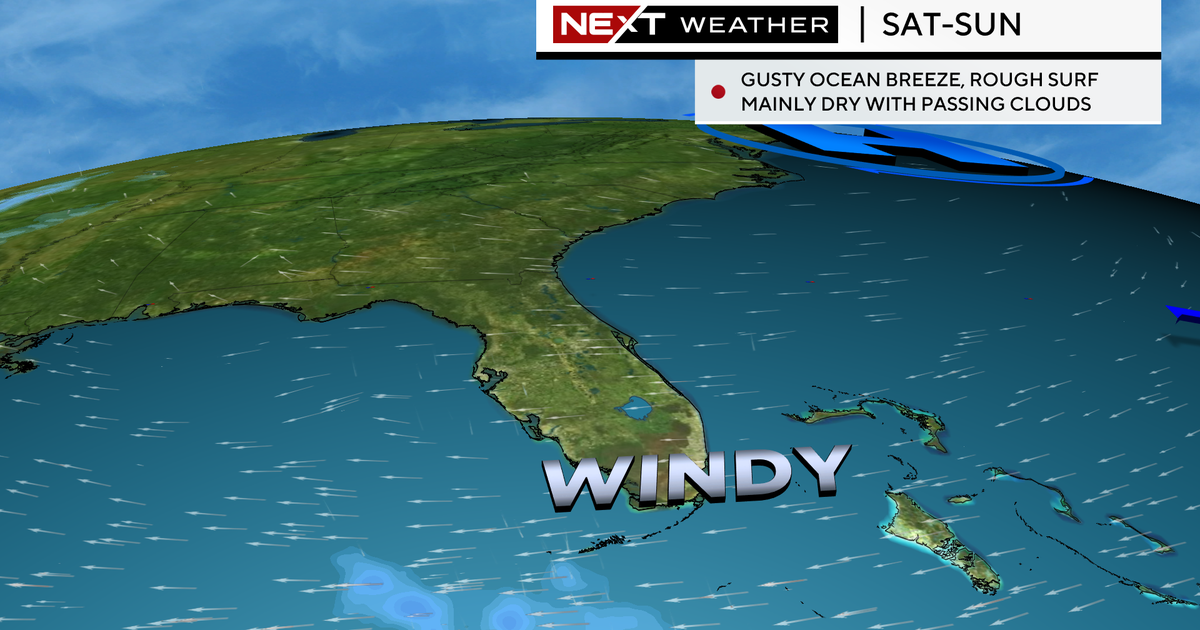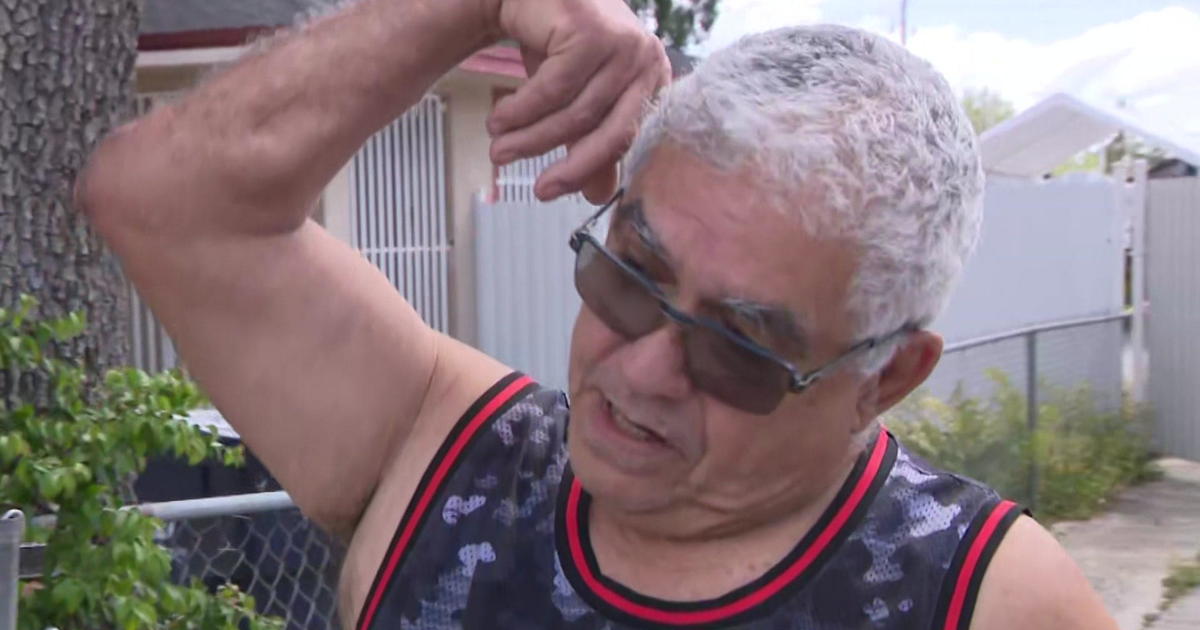Changing "Hurricane Victims" Into "Hurricane Survivors"
We were hiding in the closet as we heard what sounded like freight trains going over our home at about 2:30 in the morning.
Shortly after that, we heard all the windows in the house explode.
Suddenly the storm winds sounded a lot closer than ever.
About 20 minutes later we felt rain drizzling down on us along with the roof insulation.
The roof was coming off. I told my two daughters and my wife that we probably just went through the worst of a very powerful hurricane.
But I kept to myself the inner terror of wondering if we'd survive the night, if we'd ever see the light of day again.
At about 6:30 a.m., the winds died down. I pushed the closet door open to find half of our house gone. Everything inside was thrown around like a giant hand punched through the roof and tore it apart. Like everyone else in the neighborhood, we were dazed as we came out that morning to see all the damage - our neighborhood flattened by the storm.
Somehow, we made it through the night and faced the reality we had survived one of the worst storms in history.
Our lives would never be the same, but we survived.
- Al Sunshine, recalling Hurricane Andrew on Aug. 24, 1992
That was my story 20 years ago.
I know it's being repeated all over the East Coast. This time, it's Hurricane Sandy, but the story's the same: Millions of families being hit hard by a killer storm. Millions of families facing the aftermath of cleaning up, rebuilding, healing. Families mourning lost loved ones.
Take it from me - we're not "storm victims," we're storm survivors.
We picked ourselves up from Hurricane Andrew's rubble, just like we picked ourselves up after Katrina.
Life goes on and somehow we deal with finding fresh water, food, gasoline and a warm, dry bed for our children. Somehow we find the strength to care for each other, cleanup the damage, rebuild and get on with our lives. Somehow, we find the way to choke back tears as we remember our homes and our lives being torn apart.
Twenty years later, as I write this, I still have to wipe tears away from my eyes after remembering that night of terror.
It's worth it for me to be able to share how we survived that massive storm and found the strength to put our homes and lives back together again. My neighborhood was literally "Gone with the Wind."
Quick Insurance Tips: If you haven't done it yet, document your losses. Take pictures of everything for your insurance claims, both inside your home or apartment and outside as well. If you can, write down everything you see on a notepad or portable computer to document what has been damaged. At some point you may need to figure out replacement costs to put a monetary value on the losses.
If you can, try to salvage as much as possible from your home, especially personal items you can never replace. Check with your insurance agent first to see if you should move anything before an adjuster checks it out first.
You may be solicited by private adjusters or contractors offering to help you clean up your property or make some early repairs to prevent further damage. Be very careful before signing anything or giving anyone any money. The first few days after a hurricane is "prime time" for clean up and repair scams.
You've probably just been through the worst natural disaster you've ever faced. It's a bad time to have to deal all the "red tape" you'll need to get through for insurance claims, federal disaster aid, paying bills and trying to get your family as back to normal as possible.
Here are good websites for dealing with Sandy's aftermath and what aid may be available to you and your family:
* American Red Cross Storm Aid: redcross.org
* Federal Assistance Information: disasterassistance.gov
* FEMA individual Assistance Tools: fema.gov
* Property-Casualty Insurers Association of America: pciaa.net
* FTC Storm Rebuilding/Charity Scam Alert: ftc.gov
http://www.justice.gov/opa/pr/2012/November/12-crm-1308.html
http://www.foodsafetynews.com/2012/10/hurricane-food-safety-101/
CPSC Storm Survivial Tips:
http://www.cpsc.gov/cpscpub/prerel/prhtml13/13021.html
Remember, you survived the worst from Sandy: Now comes surviving the aftermath and realizing you are not alone.
Two decades later, I still feel the pain of having my home blown apart as I waited in a dark closet for the storm to pass. It finally did.
Rebuilding isn't easy, but again don't ever forget you are not alone and there is help available for you and your family.
Here's the latest advice from the Consumer Federation of America if you need to file a claim with the Nat'l Flood Insurance Program:
NATIONAL FLOOD INSURANCE PROGRAM FACES $8 BILLION IN PAYOUTS
WITH ONLY $4 BILLION IN FUNDS TODAY – CONGRESS WILL HAVE TO ACT
ALSO, WHAT CONSUMERS SHOULD DO TO GET FAIR CLAIMS PAYMENTS
Washington, D.C. -- The Consumer Federation of America (CFA) estimates that Hurricane Sandy could result in 200,000 thousand claims for wind damage and another 200,000 claims for flood damage. Claims of this volume will likely exhaust the National Flood Insurance Program and require Congress to move quickly and pass a supplemental authorization for the program to meet its obligations. Given the large number of claims that will likely result from this severe weather event, the CFA urges consumers to be vigilant during the claims process to ensure they receive the entire amount owed in a timely fashion.
FLOOD CLAIMS WILL LIKELY EXCEED EXISTING PAYMENT AUTHORITY
Modeling companies estimate overall damage at approximately $50 billion, with insurance funding well under half of that, about 40 percent. Payments by private insurers for wind damage to homes and business properties from Hurricane Sandy will likely exceed $10 billion dollars. Flood claims paid by the National Flood Insurance Program (NFIP) will be at least $8 billion dollars and will likely exceed $10 billion, exhausting the NFIP's existing $4 billion in payment authority. To make up this shortage, FEMA is authorized to borrow up to $500,000 with an additional $1 billion available with Presidential approval.
"Even combined, these borrowings will be insufficient to pay all flood claims related to Hurricane Sandy," said J. Robert Hunter, Director of Insurance for CFA and former Federal Insurance Administrator and Texas Insurance Commissioner. "A Congressional supplemental authorization for additional borrowing will be necessary for the program to meet its obligations."
HOW CONSUMERS CAN MAKE SURE THEY GET A FAIR CLAIM PAYMENT
- Report your claim as promptly as possible as insurance companies generally handle them first come, first serve.
- Once your claim is reported, be sure to get your claim number and write it down. Insurance company claims departments can locate your file easiest by your claim number.
- When the insurance company sends out an adjuster to survey your damage, ask if he/she is an employee of the insurance company or an independent adjuster (I.A.) hired by them. If an independent adjuster, try to secure the name of the actual company adjuster that the I.A. is sending your information to or are they authorized to make claim decisions and payments on behalf of your insurance company.
KEEP GOOD RECORDS
When you file a claim, you should immediately start a notebook documenting contacts with your insurance company. List the date, time and a brief description of the exchange. If you need to complain later, this information will be vital (see below). If an adjuster says he or she will come and does not, write it down. If an adjuster is rude, write it down.
Get out your inventory of possessions or try, at once, to list your possessions. Take pictures of your possessions before the storm and keep them in a safe place. If you later realize you have no pictures when you file a claim, don't forget that your family likely has pictures of rooms in your house (for example, from holiday or other celebrations) that can be helpful in recreating a list of your belongings.
Obtain a repair estimate from a trusted local contractor to use as a guide in talking with the adjuster. Keep receipts from emergency repairs and any costs you incur in temporary housing. This may be reimbursable under the "Additional Living Expense" portion of your homeowners' policy.
You may be entitled to money up-front for living expenses, such as hotel costs, if your home becomes uninhabitable. Insurers are usually very good about these initial payments, while the media is focused on the hurricane aftermath. Most claims problems, if they arise, come later, when bigger payments are sought.
DECIDING WHETHER TO FILE A CLAIM
You have paid your premium and are entitled to coverage. If you have a legitimate claim, do not hesitate to file it. Insurers treated many people poorly who filed claims for damages caused by Hurricane Katrina. For example, after Hurricane Katrina, insurers pulled back from offering coverage along the coasts, dumping people into higher priced, state run insurance pools. They also cut coverage and raised rates substantially. However, this should not deter you from seeking fair compensation for losses caused by Hurricane Sandy. Indeed, insurers should face greater scrutiny by regulators because of the serious claims problems that occurred after Hurricane Katrina. CFA is calling on state regulators not only to closely monitor insurers to prevent claims abuses but to stop insurers from moving unjustifiably after claims are paid to increase rates and cut back on the coverage they offer. There is no reason, actuarially, for insurers to raise rates or cut back coverage due to Hurricane Sandy, which is a storm well within the projections of insurers' current rate schedules. Insurers have already raised prices and cut back coverage along the East Coast of America and no further price or coverage action is called for.
Consumers must also act to protect themselves. To do this, consumers must stand together and agree not to buy auto insurance and other coverage from any insurance company that refuses to renew policies with consumers who make claims related to Hurricane Sandy. Consumers stood together after Hurricane Andrew, persuading Florida to pass a moratorium on the non-renewal of policies and to look carefully at rate increase applications. Consumers should fight any attempt to use hurricane claims as an excuse not to renew homeowners' policies and should complain to state regulators to assure that insurers do not take such actions.
WHAT IF THE CLAIM IS DENIED OR THE OFFER IS TOO LOW?
If the claim is denied or you feel the offer is too low, demand that the company identify the language in your homeowners' policy that served as the basis for denying your claim or offering so little. This approach has a number of benefits:
- The company may be right and you may not know it. Once they pinpoint the appropriate language in the policy, you should be able to make this determination. For example, you may have $400 in damage, but the company could well point out that you have agreed to a $500 deductible.
- The company may have slipped new limitations into the policy and not adequately informed you. If you feel that you have been misled in this regard, it might be a good idea to consult an attorney. The introduction of percentage deductibles (up to 10 percent of the value of a home) will greatly shift the cost of Hurricane Sandy from insurance companies to insurance consumers, as compared to earlier storms. The practice of shifting the cost of previously insured events back to consumers is acceptable, as long as consumers are clearly given the option to select the level of coverage they want with fully informed consent.
- Another restriction new to many policies is a limit on replacement cost payments, which might come into play in the event that a home is totally destroyed. A typical cap is 20 percent above the face value of the policy. If costs surge because of the spike in demand in materials or labor from a major storm like Hurricane Sandy (or if the state does not monitor price gouging sufficiently) this limit might apply. For example, if a home would cost $200,000 to replace and that amount was the limit on the policy, the insurance company would pay no more than 20 percent more, or $240,000. If the surge in construction costs due to extreme demand caused the price of replacing the home to jump to $300,000, the homeowner would be short $60,000.
- Once the insurance company tells you the reasons for its action, it cannot produce new reasons for denying payment or making a low offer at a later time. You have locked them in—a major advantage for the consumer.
- If you review the policy and find that, under a reasonable reading, you think you are entitled to the full amount of your claim as you read the language they relied upon, you will likely win if you go to court. Courts consistently rule that if an insurance policy is ambiguous, the reasonable expectation of the insured party will prevail since the consumer played no part in writing the language of the insurance policy.
HOW/WHERE DO I COMPLAIN?
If you feel that the offer is too low or the claim denial is wrong, the best process for getting your complaint resolved is as follows:
- Complain to more senior staff in the insurance company. Use the records you have kept since the claim process began. The more serious the insurance company sees that you are in documenting how you were treated, the more likely they will make a more reasonable offer.
- Complain to your state insurance department. All states will at least seek a response to your complaint from your company. A few states may actually intervene on your behalf with the insurance company in clear cases of bad claims handling. It is important to dispassionately present your side of the story, using the notes you have been taking.
- See a lawyer. Now the notes you took are vital. In addition to an award covering your claim, if your treatment was particularly bad, the courts in many states will allow additional compensation when the insurance company acted in "bad faith." Since insurance companies take your money in exchange for their promise to make you whole when disaster strikes, they must act in utmost good faith in performing that obligation.
WHAT ISN'T COVERED IN THE HOMEOWNERS' POLICY?
Homeowners' policies do not cover flood, earthquake, tree removal (except when the tree damages the house) or food spoilage from power failures. Some insurers use an "anti-concurrent-causation" clause in their policies that, insurers allege, removes coverage for wind damage if a flood happens at about the same time. CFA believes that these clauses are ambiguous, so if an insurer uses such a clause to deny your claim, read the provision carefully to see if you think it is ambiguous and, if so, see an attorney right away.
DO I USE THE SAME METHODS FOR A FLOOD INSURANCE CLAIM?
The federal government underwrites flood insurance coverage, although insurance companies often service claims. Follow the same procedures as above, except direct complaints to the Federal Emergency Management Agency, the government agency responsible for running the federal flood insurance program (1-800-427-4219, TDD# 1-800-427-5593). The FEMA flood insurance program tips on handling claims are located at http://www.floodsmart.gov/floodsmart/pdfs/claims_tips.html.
Since the National Flood Insurance Program (NFIP) is paid for by taxpayers, and often the same insurance company will handle the claim for both the wind and the flood damage, it is very important that consumers verify that insurers do not attribute an unjustifiably large portion of the losses they experience to flood damage. Consumers must be the first line of defense against insurers shifting costs for wind losses to the NFIP. If you see such potential abuse by insurers, contact your U.S. Representative and Senators so that they can make sure that taxpayers are protected.
"Not all insurance companies handle claims badly, so go into the claims process with an open mind," said Hunter. "Be vigilant though, or you run the real risk of being shortchanged," he concluded.
The Consumer Federation of America is an association of nearly 300 nonprofit consumer groups that was established in 1968 to advance the consumer interest through research, advocacy, and education.
Fighting Price Gouging in New York:
NEW YORK – Attorney General Eric T. Schneiderman today announced an investigation into post-Hurricane Sandy price gouging after receiving hundreds of complaints from consumers across the state of New York. Before the storm made land fall, the Attorney General issued an open letter to vendors in areas forecast to be affected by Hurricane Sandy to warn against price gouging, the inflation of the price of necessary goods and services. General Business Law prohibits such increases in costs of essential items like food, water, gas, generators, batteries and flashlights, and services like transportation, during natural disasters or other events that disrupt the market. Attorney General Schneiderman also issued a guide to New Yorkers recovering and rebuilding after Hurricane Sandy, including tips on how to avoid scams as they restore and rebuild their homes and businesses.
"Our office has zero tolerance for price gouging," said Attorney General Schneiderman. "We are actively investigating hundreds of complaints we've received from consumers of businesses preying on victims of Hurricane Sandy, and will do everything we can to stop unscrupulous individuals from taking advantage of New Yorkers trying to rebuild their lives."
New York State's Price Gouging Law (General Business Law § 396-r) prohibits merchants from taking unfair advantage of consumers by selling goods or services for an "unconscionably excessive price" during an "abnormal disruption of the market." The price gouging law covers New York State vendors, retailers and suppliers, including but not limited to supermarkets, gas stations, hardware stores, bodegas, delis, and taxi and livery cab drivers.
Although the office cannot comment on the specifics of ongoing or potential investigations, Attorney General Schneiderman reported receiving hundreds of complaints from consumers from New York City, the Hudson Valley and Long Island. While the largest number of complaints related to increased gasoline prices, consumers contacted the Attorney General to report possible gouging for emergency supplies like generators, hotels raising rates due to "high demand," as well as increased prices for food and water. The Attorney General noted that these complaints might not meet the threshold for coverage under New York's gouging statute, but encouraged consumers to contact his office to report anything that appears suspicious.
"Our office is taking every complaint seriously. Staff from regional offices across the state are triaging and acting on consumer complaints as they come in. We have contacted the targets as part of a preliminary inquiry and vendors are now on notice. While most retailers understand that customers are also neighbors, and would never think of taking advantage of New Yorkers during such disruptive times, emergency circumstances always require an extra sense of vigilance," Schneiderman said.
Attorney General Schneiderman urged New Yorkers to call his office at 800-771-7755 or log on to his office's website to make a complaint.
New York's price gouging law takes effect only upon the occurrence of triggering events that cause an "abnormal disruption of the market." An "abnormal disruption of the market" is defined as "any change in the market, whether actual or imminently threatened," that results from triggering events such as "weather events, power failures, strikes, civil disorder, war, military action, national or local emergency, or other causes." During an abnormal disruption of the market like Hurricane Sandy, all parties within the chain of distribution for any essential consumer goods or services are prohibited from charging unconscionably excessive prices. "Consumer goods" are defined by the statute as "those used, bought or rendered primarily for personal, family or household purposes." For example, gasoline, which is vital to the health, safety and welfare of consumers, is a "consumer good" under the terms of the statute. Therefore, retailers may not charge unconscionably excessive prices for gasoline during an abnormal disruption of the market.
New York's price gouging law does not specifically define what constitutes an "unconscionably excessive price." However, the statute provides that a price may be "unconscionably excessive" if: the amount charged represents a gross disparity between the price of the goods or services which were the subject of the transaction and their value measured by the price at which such consumer goods or services were sold or offered for sale by the defendant in the usual course of business immediately prior to the onset of the abnormal disruption of the market.
In other words, a "before-and-after" price analysis can be used as evidence of price gouging. Evidence that a price is unconscionably excessive may also include proof that "the amount charged grossly exceeded the price at which the same or similar goods or services were readily obtainable by other consumers in the trade area." However, a merchant may counter with evidence that additional costs not within its control were imposed for the goods or services. Notably, the price gouging law does not prohibit any disparity between the price charged before and after there is an abnormal disruption of the market. Rather, the statute prohibits a "gross disparity," when it is clear that a business is taking unfair advantage of consumers by charging unconscionably excessive prices, and increasing its profits, under severe circumstances that call for shared sacrifices.
In addition to urging New Yorkers to remain vigilant against potential price gouging as we continue the rebuilding process, Attorney General Schneiderman also issued tips on how to avoid scams related to home repair, clean up services and tree removal:
• Never pay cash, and don't pay the full price up front.Establish a payment schedule and adhere to it. Withhold final payment until the entire project is completed to your satisfaction and all required inspections and certificates of occupancy are finalized.
• Check with your insurance company.Before making any decisions, be clear about what will be covered and any steps you will need to take.
• Ask for references, check for licenses.Ask about local work contractors have done. Talk to the people who hired them; look at the jobs if you can. Make sure the contractor has any license required by your local government.
• Estimates are important: get it in writing. Ask that all estimates for work be in writing and include a description of the material to be used. Be clear that you will not pay for work done that is not agreed upon in writing. Verify that the material used is the same as described in the estimate. Make sure any changes to the estimate are in writing.
• Know your rights.Home improvement contractors are required by law to establish to an escrow account to hold the homeowners' un-disbursed funds when a contract is in excess of $500. Also, a homeowner has a three-day right to cancel a contract unless during an emergency, the homeowner has waived the three-day rule in writing.
• Use a contractor with an address you can verify. If your contractor is "here today and gone tomorrow," you may find it difficult to enforce the guarantee.
• Always be sure the contractor has valid insurance. If a worker is injured, or damage is caused on your property, you could be held liable if your contractor does not have the required insurance.
• Check with your town or city for required permits.Don't let a contractor work without the necessary permits. Failing to get approvals can delay your project, or prevent you from occupying a completed building.
If you believe you are a victim of price gouging or a post-hurricane scam, contact the Attorney General's Consumer Helpline at 800-771-7755 or find a complaint form online at: www.ag.ny.gov.
###



